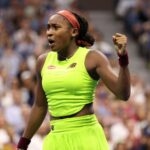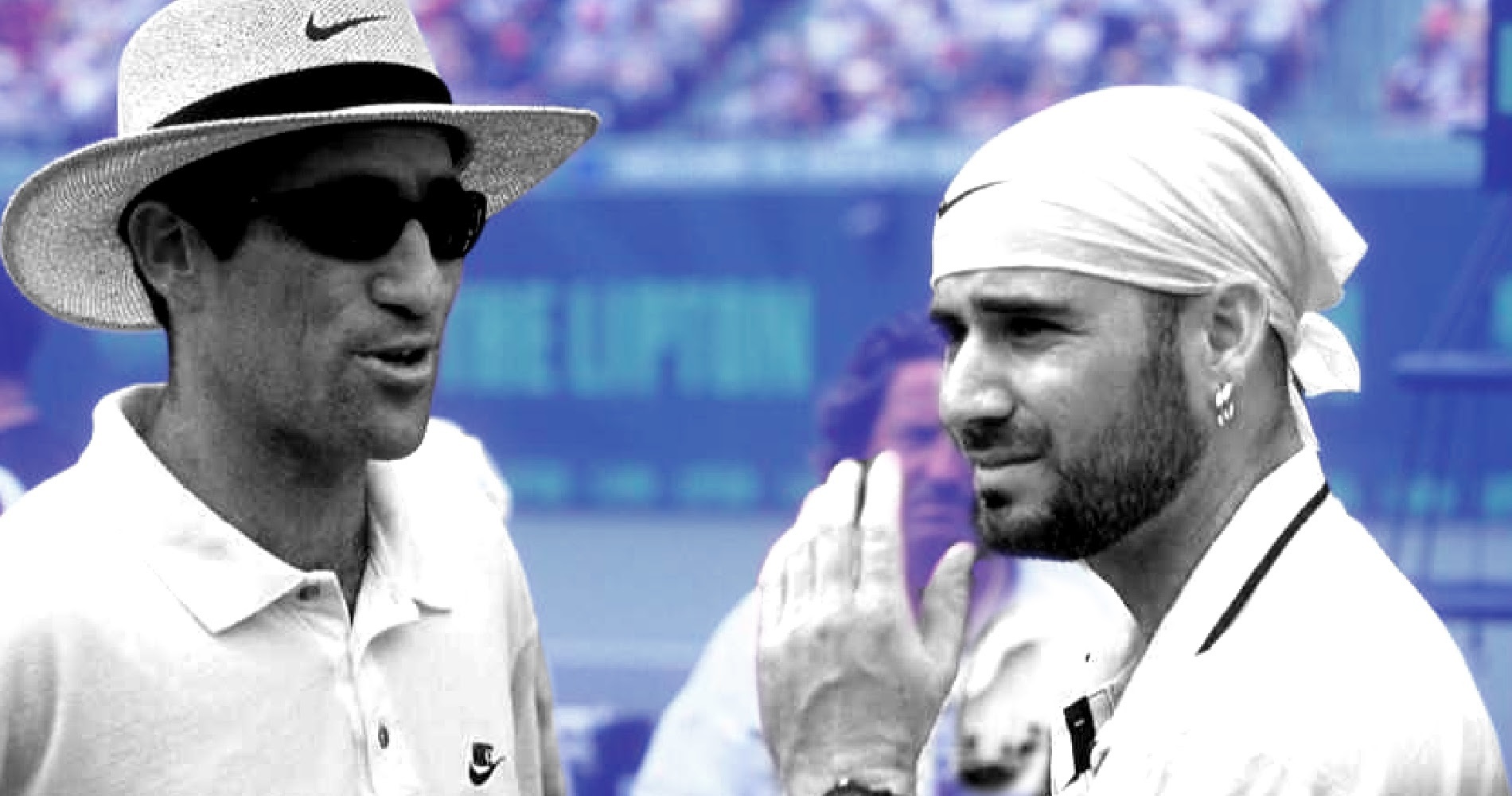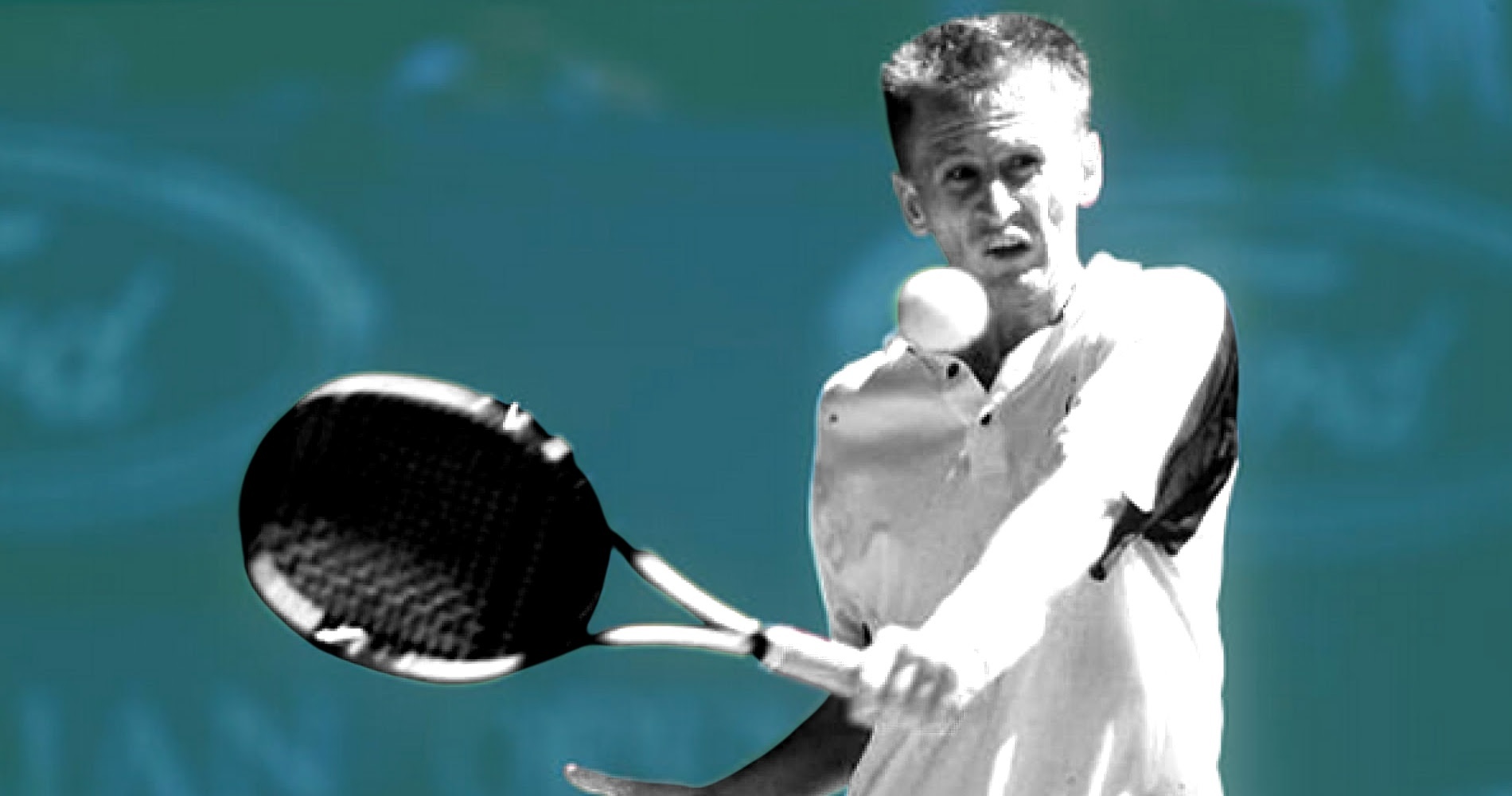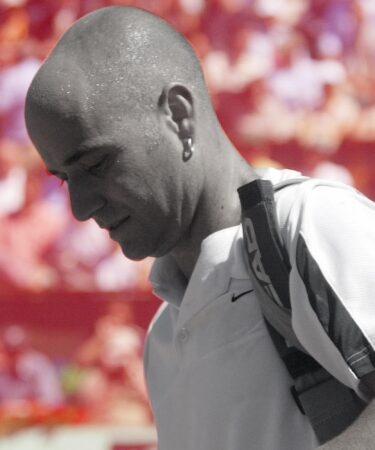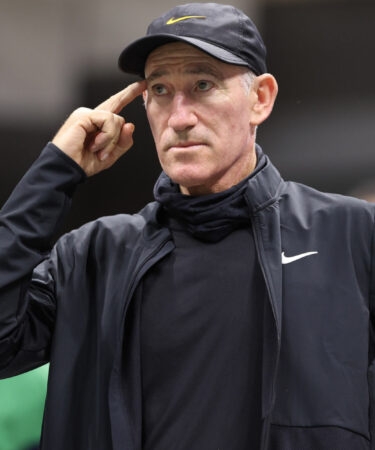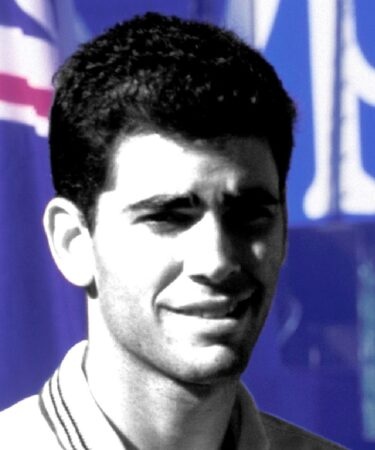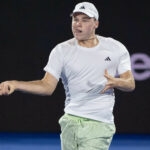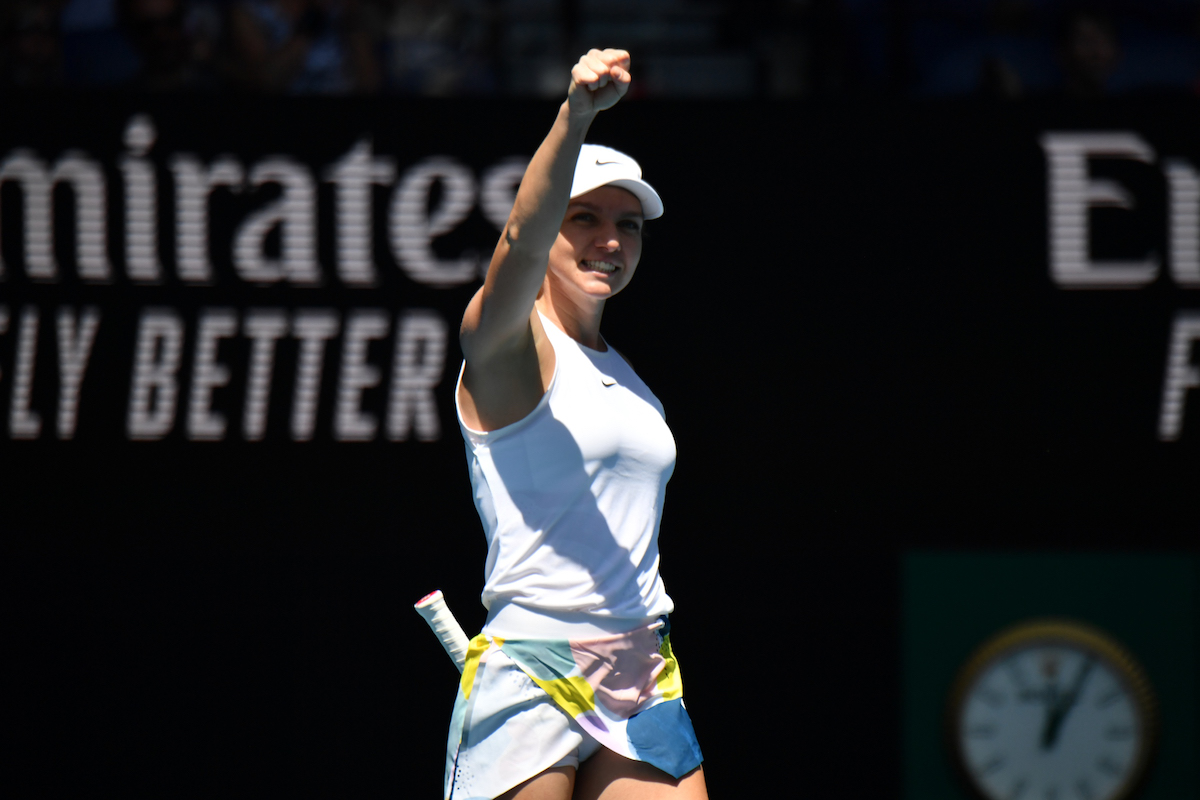December 15, 1990: The day Gilbert and Wheaton had to be separated by an official in the midst of a heated match
Every day Tennis Majors takes you back in time to look back at an important moment in tennis history. On this day in 1990, Brad Gilbert and David Wheaton almost came to blows in the semi-final of the inaugural Grand Slam Cup after a heated exchange set off by a line call being overruled
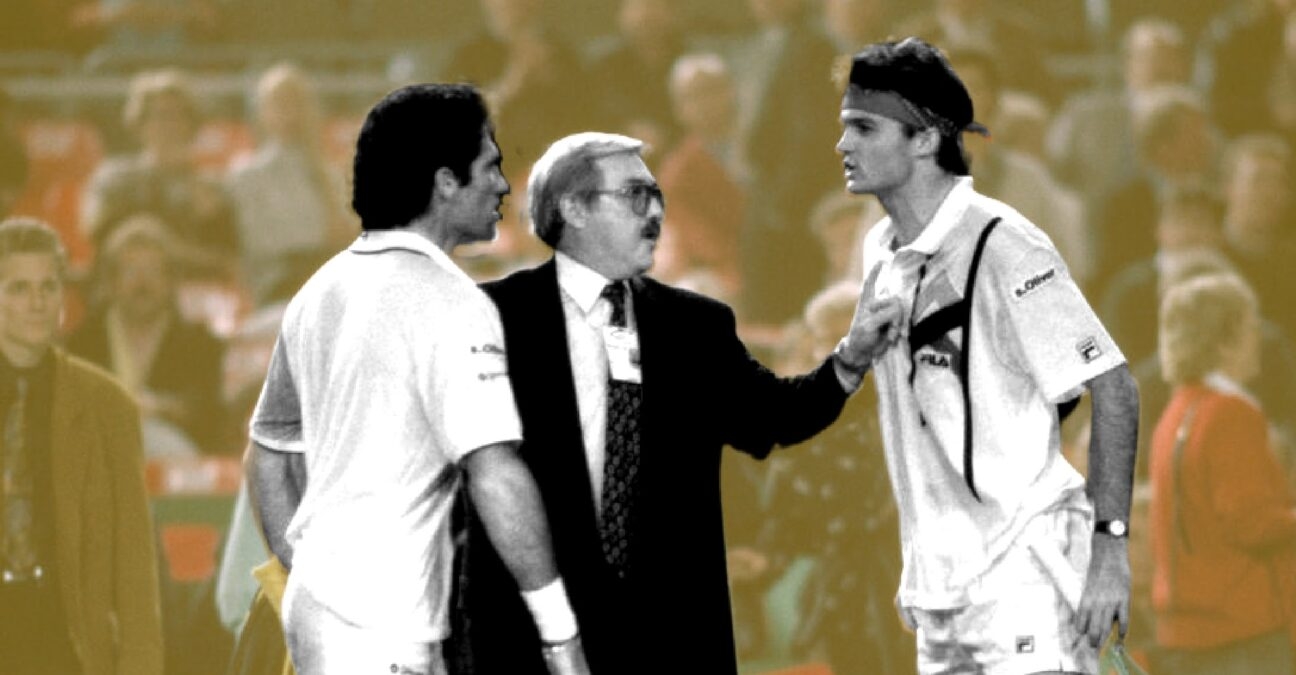 Gilbert Wheaton OTD 12_15
Image Credit – Panoramic/ Tennis Majors
Gilbert Wheaton OTD 12_15
Image Credit – Panoramic/ Tennis Majors
What exactly happened on that day?
On this day, December 15, 1990, in the semi-finals of the first-ever Grand Slam Cup, Brad Gilbert prevailed in five sets against David Wheaton (3-6, 6-3, 7-6, 2-6, 6-4) after the players almost started a fight during a changeover at the end of the third set.
The argument had started after the chair umpire reversed an important call and got out of control when Wheaton’s brother shouted at Gilbert. “It was in the heat of the moment and we are playing for a lot of money,” Gilbert said to The New York Times, referring to the unusual prize money distributed by the brand-new Grand Slam Cup.
The players involved: Brad Gilbert and David Wheaton
- Brad Gilbert: The American who liked Winning Ugly
Brad Gilbert, from the United States, was born in 1961. He turned pro in 1982, and within a few months, he claimed the first of his 20 titles in Taipei (defeating Craig Wittus in the final, 6-1, 6-4). Unlike many other professional players of his era, Gilbert did not have a major offensive weapon and his game relied mostly on great tactics, some of which he shared later in his 1993 book “Winning Ugly”.
Although he managed to climb as high as world No 4 in early 1990, after winning five tournaments in 1989, his best Grand Slam results were two quarter-final appearances reached at the 1987 US Open (lost to Jimmy Connors, 4-6, 6-3, 6-4, 6-0) and at Wimbledon in 1990 (lost to Boris Becker, 6-4, 6-4, 6-1).
Gilbert had also won a bronze medal at the Seoul Olympic Games in 1988 after losing in the semi-final against fellow American Tim Mayotte (6-4, 6-4, 6-3). In September 1990, he claimed his 20th title in Brisbane defeating Aaron Krickstein in the final (6-3, 6-1), and in December that year, he was ranked 10th in the world.
- David Wheaton: The former junior No 1 rising up the pro ranks
David Wheaton, born in 1969 in America and known for his stars-and-stripe bandanas, reached world No 1 as a junior after winning the 1987 US Open title. Following a one-year stint at Stanford, winning the 1988 NCAA Championships, he turned pro the very same year. Playing a classic serve-and-volley game, Wheaton broke into the top 100 the next year.
In 1990, not only did he claim his first title (defeating Mark Kaplan in the final of the US Men’s Clay Court Championship, 6-4, 6-4), but he also reached the quarter-finals at the US Open (defeated by John McEnroe, 6-1, 6-4, 6-4). He was now ranked No 27 in the world.
The place: Munich, Germany
The Grand Slam Cup was established in 1990 by the International Tennis Federation to compete with the ATP year-end Masters Cup. The tournament was held in Munich, Germany. The 16 best-performing players in the year’s Grand Slam events qualified to compete in the event, and, after the two first rounds were played under a best-of-three sets format, the semi-finals and the finals were best-of-five set matches.
The Grand Slam Cup was a controversial tournament. Paying out the highest prize money of any tournament in tennis, it didn’t distribute any ATP points. On top of that, it was held in December, after the top players had already played a very long season.
The facts: An overruled call sets off a chain reaction that causes mayhem
Before their clash in the semi-finals of the Grand Slam Cup, Gilbert and Wheaton had already faced each on other three occasions, and Gilbert had won each time, including their epic Wimbledon fourth-round encounter in 1990 (6-7, 3-6, 6-1, 6-4,13-11). This time though, something different was at stake. The newly established Grand Slam Cup paid much more than any other event on the circuit, leading this semi-final to be, according to Gilbert, “a million-dollar match”.
Wheaton took the first set, but Gilbert bounced back to win the second. The third set was so close that the players found themselves deadlocked at 6-6 in the tiebreak. This was the moment when the match almost turned into a boxing contest. Gilbert hit a volley that was called out by the linesman, but before he could express his disagreement, the call was reversed by the umpire, Stephen Winyard, giving him the point. In his book, Winning Ugly, Gilbert gave his own version of that moment.
“Now all hell breaks loose. Wheaton is screaming bloody murder at Winyard. And he had a right to be hysterical. It’s bad to overrule calls when they’re close. And especially at crucial moments. (…) Wheaton screams that the call can’t be overruled, that the linesman had a better look at it, that the umpire is destroying the match! He is vicious mad. (…) I don’t blame him.”
Despite Wheaton’s outburst, and despite his brother’s tantrum in the stands, the point was still given to Gilbert. Furious, Wheaton saved the set point with an ace but at 7-7, he double-faulted, and Gilbert sealed the set on the following point.
When Gilbert sat down at the changeover, Wheaton’s brother yelled at him. “I’m going to kick your ass, Gilbert!” Gilbert complained to the umpire, but as he walked past Wheaton to resume the game, his opponent spoke words that he would describe as “unprintable”. Gilbert’s version of the story continues:
“It was like one of those schoolyard fights where everybody’s calling each other names. (…) Wheaton bumps me as I bump into him. We are nose-to-nose and yelling in each other’s face. It is a zoo.”
Finally, another official stood between the two players to stop the drama. The game resumed, and, although Wheaton came to his senses and took the fourth set, Gilbert finally prevailed 6-4 in the deciding set.
“He started crying and whining and he got his way like a child,” Wheaton said later of Gilbert, according to The New York Times. “He came over and invaded my space. If he had thrown the first punch, I would have been pretty happy.”
What next? An exhausted Gilbert loses to Sampras in the final
Exhausted by this nerve-wrecking semi-final win, Gilbert would be easily defeated in the final by Pete Sampras (6-3, 6-4, 6-2). Gilbert would slowly slide down the rankings in the early 1990s, and he would then become famous as a tennis coach, leading Andre Agassi to the world No 1 spot. He also worked with players such as Andy Roddick, Andy Murray and Kei Nishikori.
Gilbert would also write a book, Winning Ugly, where he would explain his views on the game. After his coaching career would end, he would work as a TV commentator. In 2023, Gilbert joined Coco Gauff‘s team as a coach and helped her claim her first Grand Slam title at the US Open.
David Wheaton’s best year would be 1991. That year, he would reach the Wimbledon semi-finals (defeated by Boris Becker, 6-4, 7-6, 7-5), climbing as high as world No 14, and at the end of the year, he would triumph at the Grand Slam Cup (defeating Michael Chang in the final, 7-5, 6-2, 6-4), a win that would by itself represent half of his total career earnings. Suffering multiple injuries, Wheaton would remain a top 50 player until 1997, but in six encounters, he would never defeat Gilbert.
The controversial Grand Slam Cup would survive until 1999 but in 2000 it would be merged with the Masters Cup (now known as the ATP Finals) into one year-end tournament.

